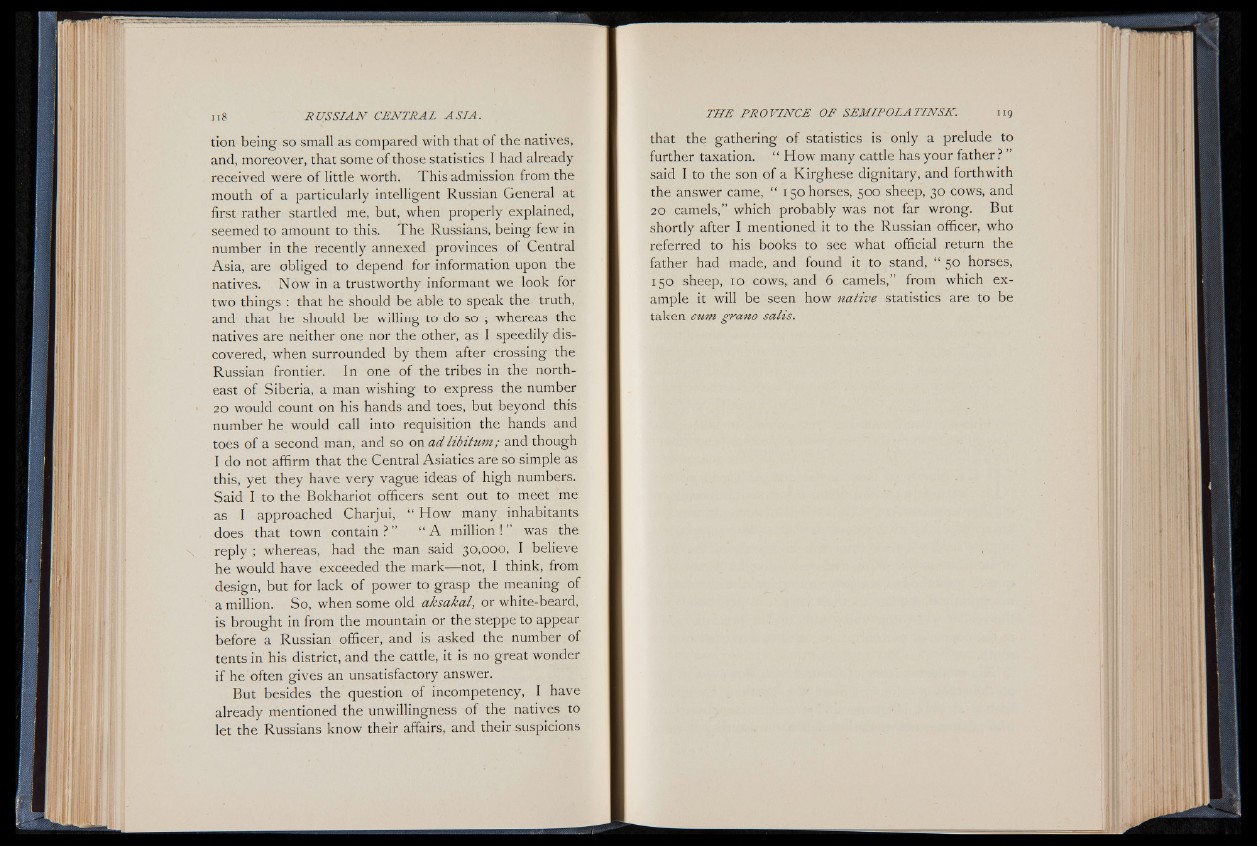
tion being so small as compared with that of the natives,
and, moreover, that some of those statistics I had already
received were of little worth. This admission from the
mouth of a particularly intelligent Russian General at
first rather startled me, but, when properly explained,
seemed to amount to this. The Russians, being few in
number in the recently annexed provinces of Central
Asia, are obliged to depend for information upon the
natives. Now in a trustworthy informant we look for
two things : that he should be able to speak the truth,
and that he should be willing to do so ; whereas the
natives are neither one nor the other, g.s I speedily discovered,
when surrounded by them after crossing the
Russian frontier. In one of the tribes in the northeast
of Siberia, a man wishing to express the number
20 would count on his hands and toes, but beyond this
number he would call into requisition the hands and
toes of a second man, and so on ad libitum; and though
I do not affirm that the Central Asiatics are so simple as
this, yet they have very vague ideas of high numbers.
Said I to the Bokhariot officers sent out to meet me
as I approached Charjui, “ How many, inhabitants
does that town contain ? ” “ A million ! ” was the
reply ; whereas, had the man said 30,000, I believe
he would have exceeded the mark— not, I think, from
design, but for lack of power to grasp the meaning of
a million. So, when some old aksakal, or white-beard,
is brought in from the mountain or the steppe to appear
before a Russian officer, and is asked the number of
tents in his district, and the cattle, it is no great wonder
if he often gives an unsatisfactory answer.
But besides the question of incompetency, I have
already mentioned the unwillingness of the natives to
let the Russians know their affairs, and their suspicions
that the gathering of statistics is only a prelude to
further taxation. “ How many cattle has your father ? ”
said I to the son of a Kirghese dignitary, and forthwith
the answer came, “ 150 horses, 500 sheep, 30 cows, and
20 camels,” which probably was not far wrong. But
shortly after I mentioned it to the Russian officer, who
referred to his books to see what official return the
father had made, and found it to stand, “ 50 horses,
150 sheep, 10 cows, and 6 camels,” from which example
it will be seen how native statistics are to be
taken cum grano salis.